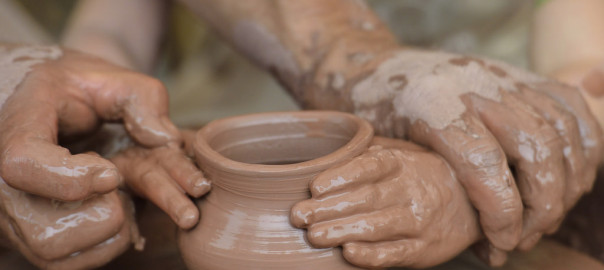A few weeks ago, I listening to a sermon by my friend Kenny Benge, pastor of St. Johns Anglican Church in Franklin, Tennessee. Towards the end, Kenny spoke on the subject of our purpose in life and read the following quote from the English Puritan William Perkins:
Concerning children: it is the duty of parents to make choice of fit callings for them, before they apply them to any particular condition of life. And that they may judge rightly what callings their children are fit for, they must observe two things in them: first, their inclination; secondly, their natural gifts—And here all parents must be warned that the neglect of this duty is a great and common sin—
— William Perkins, A Treatise of the Vocations (PDF)
When we think about callings, we tend to focus on our own calling, the process of discovering it and then fulfilling it. Perhaps we are part of a particularly self-absorbed generation, or perhaps this is simply human nature to think of ourselves first and others second. Rarely do we think about calling in terms of helping someone else find their calling.
Leading up to Mother’s Day, I’ve seen several articles that deal with the topic of mothering as a calling, either as a calling in itself, as part of a woman’s larger set of callings, or as a circumstance of life apart of any notion of “calling.” Never having been a mother, I won’t address that vocation. As a parent, however, this statement from Perkins caught me up short: Am I helping my children find their callings? How could I even begin to do that?
As I’ve reflected on Perkins’ statement, I’ve decided that there are certain elements key to fulfilling the duty that he describes.
Knowing Your Children
Perkins notes that parents “must observe two things in [their children]: first, their inclination; secondly, their natural gifts” (emphasis added) This order is quite interesting. I have a feeling that we are quite good at recognizing our children’s natural gifts — that is, their unique skills and talents — but maybe not so good at recognizing their inclinations — what they actually want and are led to do. Even if we misjudge our children’s skills relative to their peers[1], we probably have a more accurate view of our children’s skills relative to their own. Emma is better at drawing than soccer, better at dance than music, and so on.
Knowing your children in the way Perkins intends, however, requires you to know the difference between your children’s inclinations and gifts and your own. While listening to Kenny’s sermon, one of the first images that occurred to me was that of an oblivious father forcing his son into the family business, when the son had no desire or talent for it. Another was that of a parent trying to live out her failed dreams through her children. In these cases, the parent is too closely identifying his own goals, inclinations, and gifts with those of his child.
Helping Your Children Know Themselves
When Perkins was writing (the late 1500s), professions and trades were entered early in life, and parents had a great responsibility to find an apprenticeship or other path that would fit their child well. Today, with a few exceptions, we choose our professions as young adults, either in college or shortly after (maybe several times after!), when we no longer rely on our parents to make important decisions for us.
As a result, it’s crucial for parents to not only know their children well, but to help their children know themselves. This may require allowing them to fail, to try activities that don’t fit their natural gifts, or to put aside “good fits” while learning about themselves. As parents, we also have to help our children learn to reflect and take time to assess their lives. One of my hardest struggles is when I know (or think I know) the “right answer” to a problem that my child is facing, but recognize that the truly right answer is to allow them to solve the problem on their own.
Building a Right Relationship with Your Children
How many parents can’t fulfill the duty of helping children find their calling because of a broken relationship with their child? There are many, I’m sure, who know what’s right for their children, but whose advice is never given a hearing. Or whose advice results in the exactly opposite path taken by a rebellious child. Or whose advice can’t be expressed in loving words because they are so used to speaking harshly.
Knowing your child isn’t enough. You also have to be in a position where your knowledge can do some good, where it’s available to your children and where your children want to discover it. Again, because in our culture we choose our professions in young adulthood, the parent’s role for the final part of the process will be that of a counselor and mentor.
This role, ideally, will last a lifetime.
Photo credit: Diana Robinson via Flickr
- I find that I see my children’s talents as much greater than other kids’, but that I also see their mistakes and failures as much larger. It’s the “coach’s son” dilemma: he gets playing time that he doesn’t deserve, as well as criticism that he doesn’t deserve. ↩

